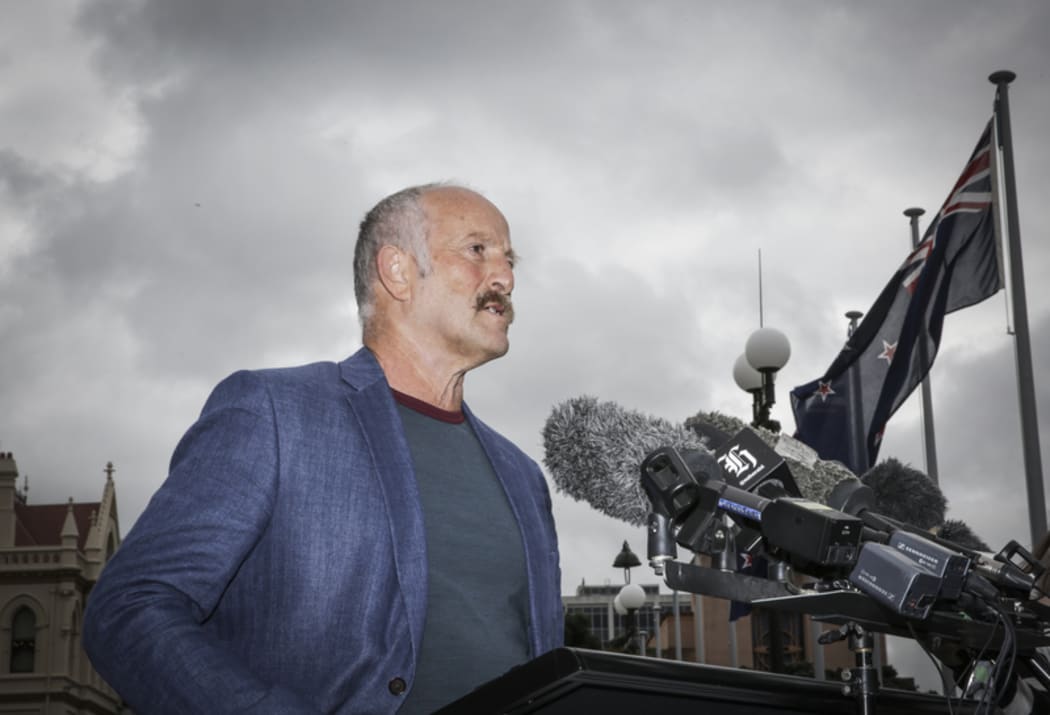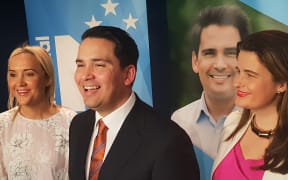By Brigitte Morten*
Opinion - When I was eight I said I was running away from home. My Mum told me that she was ringing my Brownie leader to tell her I won't be coming any more, and even started dialing the numbers. I promptly went and unpacked my bag.

Gareth Morgan has moved away from the leadership but maintains a role as chair of the policy committee. Photo: RNZ / Rebekah Parsons-King
Gareth Morgan, by telling the Electoral Commission that he was going to deregister The Opportunities Party (TOP) did the equivalent of dialing the Brownie Leader.
Those within the party who didn't want to see their chance for an evidence-based policy to disappear made commitments to push the party through to the 2020 election. Which meant TOP could then announce that they were not following through with the deregistration request.
TOP's announcement that they will be continuing is their best and possibly only chance to demonstrate that they can turn from a vanity party in to a grassroots-based party.
Morgan's decision to move away from the leadership and allow longstanding party member Geoff Simmons to step forward, would have factored in to members' decision to recommit to the party.
Many of the criticisms of TOP were about Morgan's autocratic leadership style. While he maintains a role as chair of the policy committee, he will no longer be able to dominate the decision making.
Policy wonks are often not the best politicians. This is especially true when they are the face of a party rather than the member of team. See for example, Morgan's decision in the lead up to the 2017 election to make TOP's first major policy announcement a new complex taxation structure.
In moving Morgan in to more of a policy role TOP can start to shake off some of the baggage and be more than the anti-cat party.
But they also lose their biggest drawcard. For what is known, and there is little, of the new leader, there is a general opinion that Simmons is intelligent and personable. Unfortunately, rarely does intelligent and personable equate to media airtime and votes.
Simmons is going to have to be willing make stronger statements and dramatic policy announcements if he has any chance of getting the party across the line and into parliament.
The most likely way it seems that they could make it is a deal on an electorate seat. And the most likely party to offer it to them is National. While National continues to consistently poll as the most popular party, they still do not have a pathway to government other than the Greens or NZ First screwing something up.
When asked about TOP's rise from the ashes, National Leader Simon Bridges certainly didn't make any warm overtures but he also did not rule out working together. An electorate seat deal with a centre left candidate is also not unheard of for the party. National long supported United Future's MP Peter Dunne in Ohariu with a deal not to promote their candidate in the seat.
The people who may be most concerned by TOP's resurgence are the Greens. In their announcement, TOP highlighted two policy areas which may attract Green voters - cannabis legislation and environmental protection. These could be particularly attractive to those voters who feel isolated from the more socialist rhetoric of the Greens' left led by Marama Davidson.
Taxation, also highlighted in the announcement, is likely to be hot topic at the next election. The Labour government has already said that they will take the recommendations from the tax working group to the voters in 2020. If TOP frames their policy right they could drive a clear path for themselves between Labour's recommendations and National's likely opposition to any tax increases.
TOP may meet the same fate as many of their predecessors and fail once again to get in to parliament but they at least seems to be demonstrating they have learnt some lessons from the last election. However, only time will tell whether the threat that the party could disappear is enough to keep volunteers and resources going the long two years until the next election.
* Brigitte Morten is a senior consultant for Silvereye. Prior to that she was a senior ministerial adviser to the Minister of Education in the previous National-led government, and an adviser and campaign director for Australia's Liberal Party.


